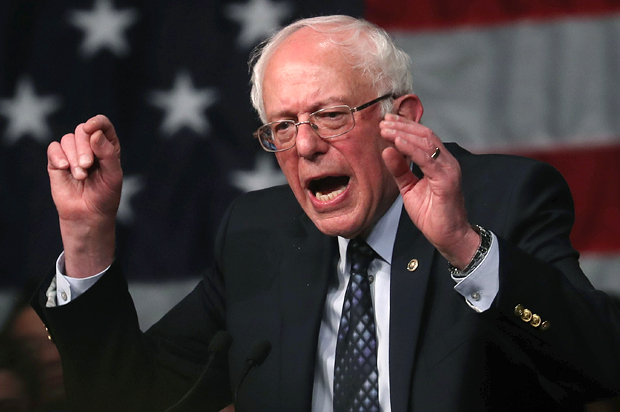Sanders’ political revolution, such as it is, does not hinge on this election. Sanders himself as conceded this over and over again. Sure, he wants to win, but his campaign is about bringing more people into the process. That means building a grassroots movement and getting people involved at the ground level for years to come.
Hillary Clinton will almost certainly be the Democratic nominee. Bernie’s path to the nomination was narrow before New York – now it’s practically non-existent. But Sanders can leave a lasting impression on the Democratic Party. If the revolution he started persists beyond November, if the millions of voters he inspired stay engaged, Sanders will have an enormous amount of political leverage moving forward.
According to a New York Times report, the Sanders campaign is already thinking in these terms. Although they won’t quite say it (for good reasons), Sanders’ staff knows the nomination is all but gone. But there’s still plenty of reasons to press on. Nicholas Confessore writes that “Senator Sanders and his allies are trying to use his popularity to expand his political influence, setting up an ideological struggle for the soul of the Democratic Party in the post-Obama era.”
This is a wise move for the Sanders campaign. Political power in a democracy is the ability to mobilize people. Sanders has run the most impressive grassroots campaign in my lifetime. It wasn’t enough to topple the Clinton machine (which is essentially the Democratic establishment), but he managed to outraise Clinton month after month on the backs of millions of small individual donors.
As a result, Sanders now has a “two-million-person donor list” which can be used to raise money for progressive candidates all across the country. There’s a lot at stake in November. Apart from the presidential contest, there are potentially dozens of congressional seats in play. Redistricting may, ultimately, undercut the Democrats’ efforts to retake the House, but a major influx of money, attention and support could tip the scales in some of these races. Sanders is better positioned to make a difference than any other Democrat in the country right now – that gives him tremendous influence.
Thus, as Confessore writes, “Aides to Mr. Sanders have been pressing party officials for a significant role in drafting the platform for the Democratic convention in July, aiming to lock in strong planks on issues like a $15-an-hour federal minimum wage, breaking up Wall Street banks and banning natural gas fracking.”
All of this is great news for Sanders supporters. The Democratic Party, in so many ways, has abandoned its progressive roots. Democrats have been pulled, gradually, to the right by a vapid but influential conservative movement. The left hasn’t really been represented in Washington for decades – not in any significant way at least. Sanders has already made a difference in this campaign by drawing Clinton leftward. Shaping the platform will make it difficult for Clinton – or the party more generally – to drift back to the right after the nomination battle is over.
Because Clinton currently accounts for a fifth of the DNC’s monthly income, she maintains a tight grip on the party’s power structure. Sanders’s fundraising prowess alters those dynamics considerably. The Democratic platform will never mirror Sanders’s – and it probably shouldn’t. Even if he became the nominee, Sanders would have to tack to the center to compete in a general election. But the Democratic Party lost its way in the age of dark money and Citizens United. The Sanders campaign offers a corrective to this, a chance for the Democrats to re-establish themselves as the party of the working and middle classes.
“There is a greater goal here,” said Rep. Raul M. Grijalva, co-chairman of the Congressional Progressive Caucus, “The contribution of Bernie that will be lasting for us is that we will coalesce around an agenda.” And that’s what the Sanders campaign should focus on: dictating the agenda. If Sanders can’t lead the ticket, he’d do well to maximize his leverage on this front. A Democratic Party that embraces Sanders’s campaign themes will win a generation of voters desperate to change the status quo. It’s also an opportunity to unite the party as the Republicans stumble inexorably towards a bitter and chaotic convention.
For that reason, the DNC should think carefully about how it deals with the Sanders campaign. The worst possible outcome at this point would be to further alienate the coalition Sanders has built. They may not win over the hardliners, but they have to find a way to bridge the divide. If they don’t, the potential of this moment will be lost.

